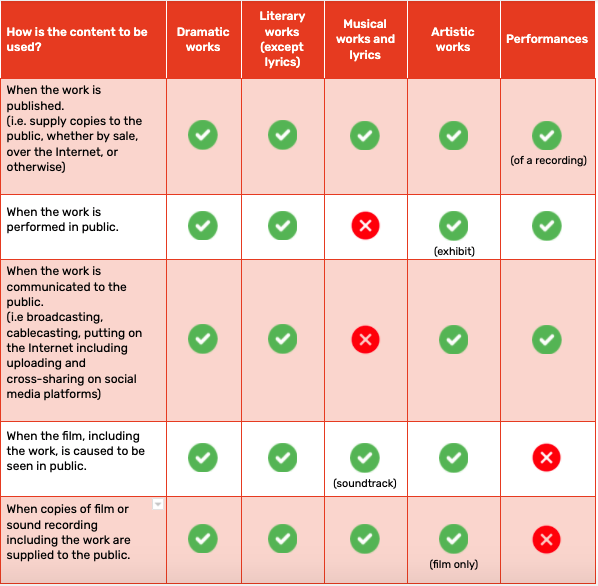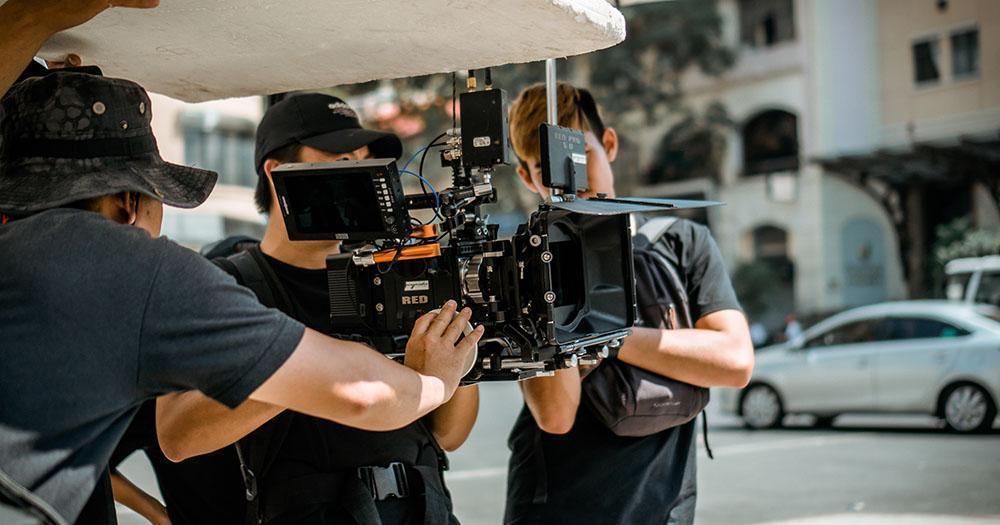You might have probably heard about the changes that were made to the Copyright Act, which will kick in on Nov. 21, 2021.
A key change is that creators of works such as photographs, portraits, engravings, sound recordings and films will now own the copyright to their work by default, even if they were commissioned to do the work.
In addition, when certain creative works are used in public, including distributing them online, the creator or performer of the content has to be identified (i.e credited).
Not all content will require the creator or performer to be credited. The new right only applies to literary (such as poetry and articles), musical, dramatic and artistic works (such as paintings and photographs), and depends on the manner of use of these works. There are also certain exceptions, such as if the creator or performer’s identity is not known, or they consent to not being identified.
When do you need to identify the creator or performer?
So what does this mean for me as a content creator?
If you’re in the shoes of a content creator or performer, under the new Act, you should be credited whenever your work or performances is used in public, including social media and online platforms.
For example, if you painted an artwork, people must properly attribute or identify you as the creator, in a clear and reasonably prominent manner, in accordance with the way that you wish to be identified.
This right to be credited is separate from your copyright. This means that people must also first seek your permission to use your painting before doing so, unless it can be covered by existing exceptions.
Under the new Act, you will by default own the copyright to a work if you created it, even if you were commissioned to create it. For example, if you have been commissioned to take a photograph, draw a portrait, make an engraving, produce a sound recording or film, the copyright to such content belongs to you, unless stated otherwise in the contract. This means, you will have more negotiating power with your clients, and flexibility to retain or sell your copyright to your clients.
What if I am the owner of a business?
This means that if you wish to commission a work (eg a photograph or painting), then you have to negotiate accordingly with the creator and have it stated in the commissioning contract that your business is the owner of the copyright in the work.
Also, when using the works of others publicly, you need to check whether the type of content and manner of use gives rise to an obligation to identify the creator or performer. If there is such an obligation, you need to ensure that the creator or performer is properly identified, or seek the consent from the creator or performer not to be identified.
For example, say your business is streaming videos online for advertising or marketing purposes, identification is not required for the melody and lyrics when a song is streamed. There is also no right of identification for the makers of sound recordings and films.
What if I am hiring a freelance videographer to make a marketing video for an online advertisement?
Under the new Act, by default — if the contract is silent on copyright ownership — the copyright of the video belongs to the videographer that was hired by your company. |
This means that while the company can use the commissioned video for its intended purpose without needing to own the copyright to do so, it will need to get the videographer’s consent to use the video for additional purposes, or negotiate additional uses in the commissioning contract.
Additionally, the company should also consider whether they are required to identify the creator of the literary or artistic works incorporated in the video (e.g. the texts or photographs), or to obtain the creator’s consent not to be identified.
What about videos created by full-time employees of a company?
In this case, the copyright lies with the company itself as the new Copyright Act provides that employers own the copyright to all works created by employees in the course of employment by default.
Here’s an infographic to help you get a better sense of the scope of the new Copyright Act:

On top of that, IPOS also offers an IP Legal Clinic where you can arrange a 45-minute session with a lawyer to obtain preliminary legal advice on IP dispute matters before you decide on the next course of action. You will be required to pay a fee directly to the law firm before IPOS reimburses you for the cost of the session.
What about my wedding photos?
This article made the author a little bit more conscientious about the importance of asking for permission.
Top photo by Le Minh via Pexels
If you like what you read, follow us on Facebook, Instagram, Twitter and Telegram to get the latest updates.
